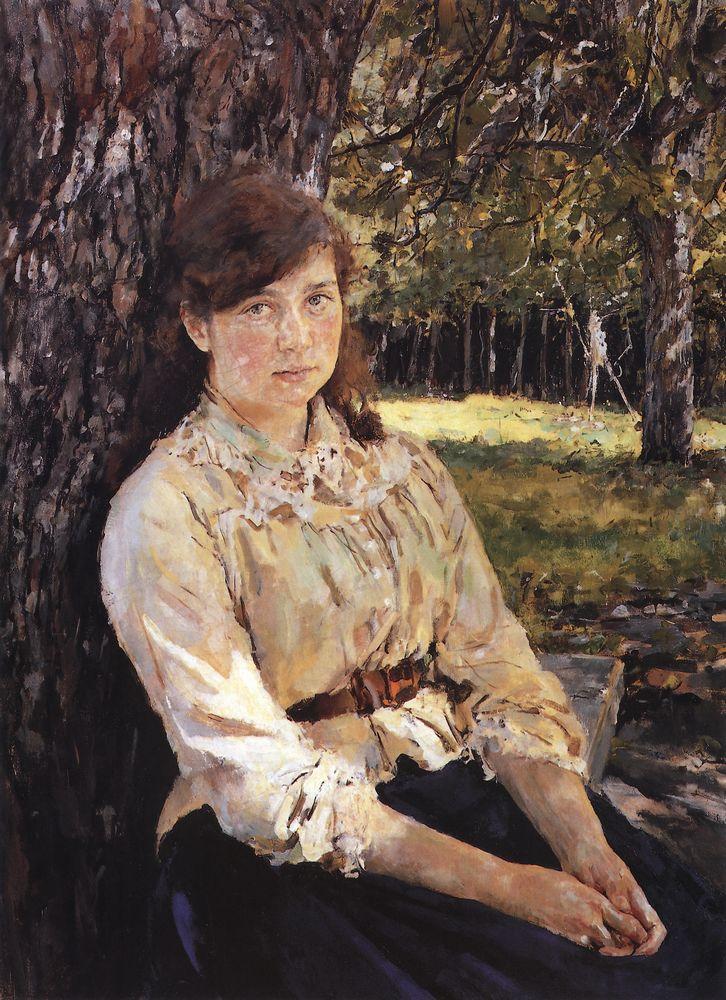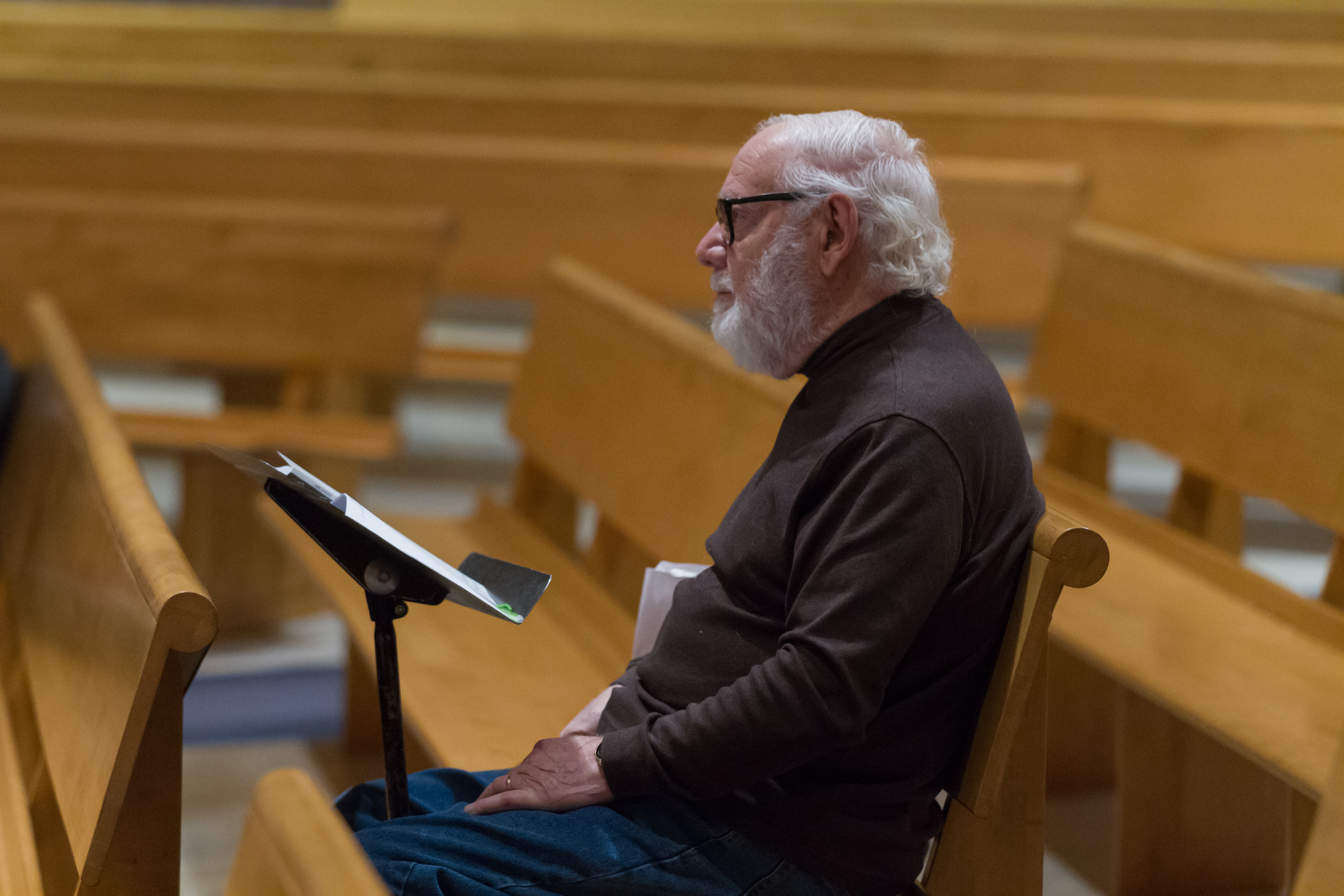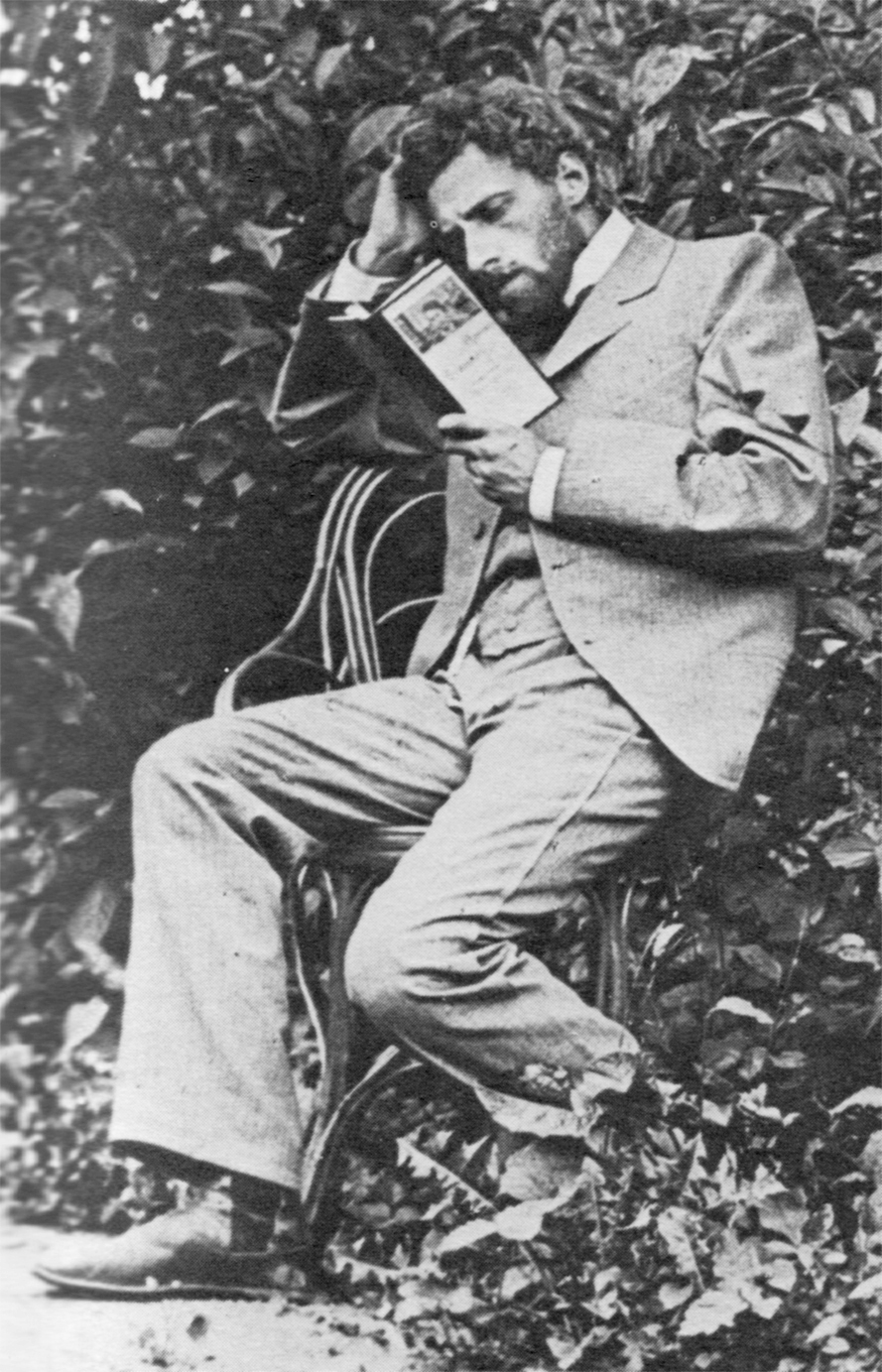|
The Bear (play)
''The Bear: A Joke in One Act'', or ''The Boor'' ( rus, Медведь: Шутка в одном действии, Medved': Shutka v odnom deystvii, 1888), is a one-act comedic play written by Russian author Anton Chekhov. The play was originally dedicated to Nikolai Nikolaevich Solovtsov, Chekhov's boyhood friend and director/actor who first played the character Smirnov. Characters * Elena Ivanovna Popova, a landowning little widow, with dimples on her cheeks, her husband has died *Grigory Stepanovitch Smirnov, a middle-aged landowner *Luka, Popova's aged footman caring, loyal, obedient and not so intelligent Plot The play takes place in the drawing room of Elena Ivanovna Popova's estate exactly seven months after her husband's death. Since her husband died, Popova has locked herself in the house in mourning. Her footman, Luka, begins the play by begging Popova to stop mourning and step outside the estate. She ignores him, saying that she made a promise to her husband to remain ... [...More Info...] [...Related Items...] OR: [Wikipedia] [Google] [Baidu] |
Valentin Serov
Valentin Alexandrovich Serov (russian: Валенти́н Алекса́ндрович Серо́в; 19 January 1865 – 5 December 1911) was a Russian painter and one of the premier portrait artists of his era. Life and work Youth and education Serov was born in Saint Petersburg, son of the Russian composer and music critic Alexander Serov and his wife and former student Valentina Serova, also a composer in her own right. Raised in a highly artistic milieu he was encouraged to pursue his talents by his parents and in his childhood he studied in Paris and Moscow under Ilya Repin and in the St. Petersburg Academy of Arts (1880–1885) under Pavel Chistyakov. Serov's early creativity was sparked by the realistic art of Repin and strict pedagogical system of Chistyakov. Further influences on Serov were the old master paintings he viewed in the museums of Russia and Western Europe, friendships with Mikhail Vrubel and (later) Konstantin Korovin, and the creative atmosphere ... [...More Info...] [...Related Items...] OR: [Wikipedia] [Google] [Baidu] |
A Marriage Proposal
''A Marriage Proposal'' (sometimes translated as simply ''The Proposal'', russian: Предложение, translit=Predlozheniye, italic=yes) is a One-act play, one-act farce by Anton Chekhov, written in 1888–1889 and first performed in 1890. It is a fast-paced play of dialogue-based action and situational humour. A young man Lomov comes to propose his neighbour Natalya but they both keep on fighting on various topics. Through this play, Chekhov exposes the fakeness of the world and tries to show how superficial people are of these days. Rather than emotional bonding in relationships, people simply connect with wealth and money. In this story, Chobukov and Lomov know each other closely. Plot synopsis ''Ivan Vassilevitch Lomov'', a long-time neighbour of ''Stepan Stepanovitch Chubukov'', has come to propose marriage to Chubukov's 25-year-old daughter, ''Natalya Stepanovna''. After he has asked and received joyful permission to marry Natalya, she is invited into the room, and he ... [...More Info...] [...Related Items...] OR: [Wikipedia] [Google] [Baidu] |
The Bear (opera)
''The Bear'' is the second of the two operas by William Walton, described in publication as an "Extravaganza in One Act". The libretto was written by Paul Dehn and Walton,Holden, p. 1050 based on the play of the same title by Anton Chekhov (which is also sometimes translated into English as ''The Boor''). Walton received a commission from the Koussevitzsky Foundation in 1958, and he dedicated the opera "to the memory of Serge and Natalie Koussevitzky". He began composing in 1965 when the Aldeburgh Festival in England requested an opera from him. ''The Bear'' was first performed at the Jubilee Hall, Aldeburgh on 3 June 1967. The opera is regarded as having "enjoyed more success and popularity than its larger-scale predecessor, ''Troilus and Cressida'' .....because its witty parodies are in the manner of alton's 1922'' Facade''" and the librettists' ability "to emulate Chekhov's caricatures of the three main characters" are also successful. Synopsis :Place: The drawing roo ... [...More Info...] [...Related Items...] OR: [Wikipedia] [Google] [Baidu] |
William Walton
Sir William Turner Walton (29 March 19028 March 1983) was an English composer. During a sixty-year career, he wrote music in several classical genres and styles, from film scores to opera. His best-known works include ''Façade'', the cantata ''Belshazzar's Feast'', the Viola Concerto, the First Symphony, and the British coronation marches ''Crown Imperial'' and '' Orb and Sceptre''. Born in Oldham, Lancashire, the son of a musician, Walton was a chorister and then an undergraduate at Christ Church, Oxford. On leaving the university, he was taken up by the literary Sitwell siblings, who provided him with a home and a cultural education. His earliest work of note was a collaboration with Edith Sitwell, ''Façade'', which at first brought him notoriety as a modernist, but later became a popular ballet score. In middle age, Walton left Britain and set up home with his young wife Susana on the Italian island of Ischia. By this time, he had ceased to be regarded as a moderni ... [...More Info...] [...Related Items...] OR: [Wikipedia] [Google] [Baidu] |
Dominick Argento
Dominick Argento (October 27, 1927 – February 20, 2019) was an American composer known for his lyric operatic and choral music. Among his best known pieces are the operas '' Postcard from Morocco'', '' Miss Havisham's Fire'', ''The Masque of Angels'', and '' The Aspern Papers.'' He also is known for the song cycles ''Six Elizabethan Songs'' and ''From the Diary of Virginia Woolf''; the latter earned him the Pulitzer Prize for Music in 1975. In a predominantly tonal context, his music freely combines tonality, atonality and a lyrical use of twelve-tone writing. None of Argento's music approaches the experimental, stringent ''avant-garde'' fashions of the post-World War II era.Saya, Virginia. "Dominick Argento," ''Grove Music Online'', ed. L. Macy. (Accessed 15 December 2006). As a student in the 1950s, Argento divided his time between the United States and Italy, and his music is greatly influenced by both his instructors in the United States and his personal affection for Italy ... [...More Info...] [...Related Items...] OR: [Wikipedia] [Google] [Baidu] |
Royalties
A royalty payment is a payment made by one party to another that owns a particular asset, for the right to ongoing use of that asset. Royalties are typically agreed upon as a percentage of gross or net revenues derived from the use of an asset or a fixed price per unit sold of an item of such, but there are also other modes and metrics of compensation.Guidelines for Evaluation of Transfer of Technology Agreements, United Nations, New York, 1979 A royalty interest is the right to collect a stream of future royalty payments. A license agreement defines the terms under which a resource or property are licensed by one party to another, either without restriction or subject to a limitation on term, business or geographic territory, type of product, etc. License agreements can be regulated, particularly where a government is the resource owner, or they can be private contracts that follow a general structure. However, certain types of franchise agreements have comparable provisions. N ... [...More Info...] [...Related Items...] OR: [Wikipedia] [Google] [Baidu] |
Korsh Theatre
The Russian Drama Korsh Theatre (russian: Русский драматический театр Корша), commonly known as the Korsh Theatre, was a theatre which functioned in Moscow, Imperial Russia from 1882 until 1917. It was named after its founder, entrepreneur Fyodor Korsh. After the 1917 Revolution it carried on for several years under different guises, known variously as the Union of Artists, The Third RSFSR Theatre, The Comedy Theatre (Former Korsh), and finally the Moscow Drama Theatre, before being finally shut down in 1933. The building, situated on Petrovsky Lane, is now occupied by the Theatre of Nations. History The theatre was co-founded by the entrepreneur Fyodor Korsh and the actors Modest Pisarev and Vasily Andreyev-Burlak on the basis of the Anna Brenko's Pushkin Theatre, which had gone bankrupt in 1881. In 1883 Korsh (who had received substantial financial help from the industrialist and patron of arts Alexander Bakhrushin) became its sole owner. Its ... [...More Info...] [...Related Items...] OR: [Wikipedia] [Google] [Baidu] |
Fainting
Syncope, commonly known as fainting, or passing out, is a loss of consciousness and muscle strength characterized by a fast onset, short duration, and spontaneous recovery. It is caused by a decrease in blood flow to the brain, typically from low blood pressure. There are sometimes symptoms before the loss of consciousness such as lightheadedness, sweating, pale skin Pallor is a pale color of the skin that can be caused by illness, emotional shock or stress, stimulant use, or anemia, and is the result of a reduced amount of oxyhaemoglobin and may also be visible as pallor of the conjunctivae of the eyes o ..., blurred vision, nausea, vomiting, or feeling warm. Syncope may also be associated with a short episode of muscle twitching. Psychiatric causes can also be determined when a patient experiences fear, anxiety, or panic; particularly before a stressful event usually medical in nature. When consciousness and muscle strength are not completely lost, it is called presy ... [...More Info...] [...Related Items...] OR: [Wikipedia] [Google] [Baidu] |
Vsevolod Meyerhold
Vsevolod Emilyevich Meyerhold (russian: Всеволод Эмильевич Мейерхольд, translit=Vsévolod Èmíl'evič Mejerchól'd; born german: Karl Kasimir Theodor Meyerhold; 2 February 1940) was a Russian and Soviet theatre director, actor and theatrical producer. His provocative experiments dealing with physical being and symbolism in an unconventional theatre setting made him one of the seminal forces in modern international theatre. During the Great Purge, Meyerhold was arrested in June 1939. He was tortured, his wife was murdered, and he was executed on 2 February 1940. Life and work Early life Vsevolod Meyerhold was born Karl Kasimir Theodor Meyerhold in Penza on to Russian-German wine manufacturer Friedrich Emil Meyerhold and his Baltic German wife, Alvina Danilovna (). He was the youngest of eight children.Pitches (2003, pg. 4) After completing school in 1895, Meyerhold studied law at Moscow University but never completed his degree. He was ... [...More Info...] [...Related Items...] OR: [Wikipedia] [Google] [Baidu] |
Theatre Director
A theatre director or stage director is a professional in the theatre field who oversees and orchestrates the mounting of a theatre production such as a play, opera, dance, drama, musical theatre performance, etc. by unifying various endeavors and aspects of production. The director's function is to ensure the quality and completeness of theatre production and to lead the members of the creative team into realizing their artistic vision for it. The director thereby collaborates with a team of creative individuals and other staff to coordinate research and work on all the aspects of the production which includes the Technical and the Performance aspects. The technical aspects include: stagecraft, costume design, theatrical properties (props), lighting design, set design, and sound design for the production. The performance aspects include: acting, dance, orchestra, chants, and stage combat. If the production is a new piece of writing or a (new) translation of a play, the director ... [...More Info...] [...Related Items...] OR: [Wikipedia] [Google] [Baidu] |
Theatre Producer
A theatrical producer is a person who oversees all aspects of mounting a theatre production. The producer is responsible for the overall financial and managerial functions of a production or venue, raises or provides financial backing, and hires personnel for creative positions (writer, director, designers, composer, choreographer—and in some cases, performers). The independent producer usually initiates the production—finding the script and starting the process. The producer finds the director and pursues the primary goals, to balance and coordinate business and financial aspects in the service of the creative realization of the playwright's vision. This may include casting, but often only includes casting approval. The producer may secure funds for the production, either through their own company or by bringing investors into the production in a limited partnership agreement. In this business structure, the producer becomes the general partner with unlimited liability, and ... [...More Info...] [...Related Items...] OR: [Wikipedia] [Google] [Baidu] |
New York City
New York, often called New York City or NYC, is the List of United States cities by population, most populous city in the United States. With a 2020 population of 8,804,190 distributed over , New York City is also the List of United States cities by population density, most densely populated major city in the United States, and is more than twice as populous as second-place Los Angeles. New York City lies at the southern tip of New York (state), New York State, and constitutes the geographical and demographic center of both the Northeast megalopolis and the New York metropolitan area, the largest metropolitan area in the world by urban area, urban landmass. With over 20.1 million people in its metropolitan statistical area and 23.5 million in its combined statistical area as of 2020, New York is one of the world's most populous Megacity, megacities, and over 58 million people live within of the city. New York City is a global city, global Culture of New ... [...More Info...] [...Related Items...] OR: [Wikipedia] [Google] [Baidu] |





